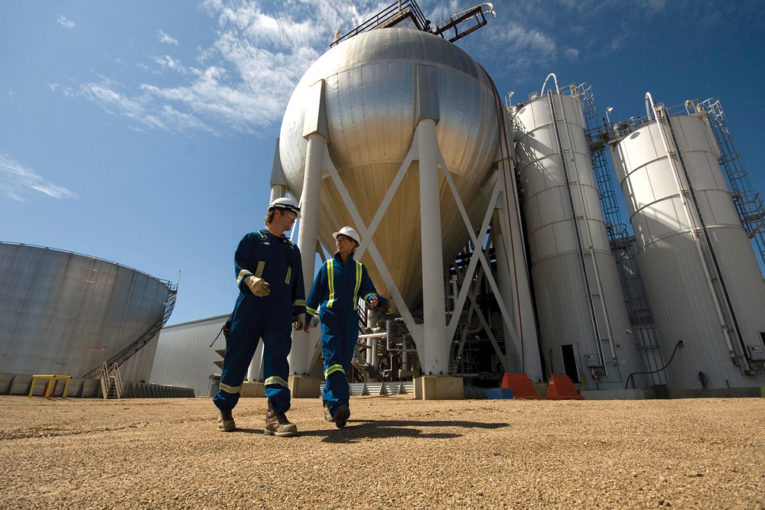
CALGARY — With time running out and amid a massive sell-off in Canadian oil stocks, analysts do not expect a white knight to emerge for troubled oilsands producer MEG Energy Corp. as it continues to fend off a hostile takeover bid from Husky Energy Inc.
On Thursday, Husky continued to promote its offer to purchase MEG with a combination of cash and its own shares in a deal valued at $6.4 billion including debt.
The company said it requires two-thirds of MEG shareholders to support Husky’s offer before it would begin acquiring shares to complete the transaction.
“We remain prepared to engage,” Husky spokesperson Mel Duvall said when asked if the company was in conversations with MEG directly on concluding a deal. He declined to provide more information.
The offer was first made two-and-a-half months ago and the likelihood of a better offer emerging before the bid closes on January 16, 2019 is remote, analysts say.
Husky’s share price has fallen 58 per cent from a year-to-date high of $22.68 each before it launched its hostile bid to a year-to-date low of $14.30 peer share on Thursday.
MEG shares initially rallied to $11.07 per share after Husky announced its offer, but stood at around $7.78 each Thursday, which is roughly where they traded before the hostile takeover offer.
Other Canadian oilpatch companies that have attempted to buy out smaller rivals, such as Precision Drilling Corp. and Baytex Energy Corp., have seen similar share price declines and as tax-loss selling has intensified in the fourth quarter.
Analysts think Husky will clinch the deal in the new year.
“We continue to expect the proposed acquisition of MEG Energy will close in early 2019 and do not believe there will be a white knight with respect to this transaction,” Canaccord Genuity analyst Dennis Fong said in a Thursday research note.
Similarly, Raymond James analyst Chris Cox said he expected executives at Husky and MEG would negotiate a friendly deal, implying that there could still be upside to Husky’s initial offer.
MEG declined to comment on whether it has attempted to solicit competing bids or negotiate with Husky on Thursday. The company has publicly rejected Husky’s offer and MEG president and CEO Derek Evans has previously said Husky could afford to pay more.
Earlier this week, Husky announced it had received all the regulatory approvals it needed to acquire MEG, a development which president and CEO Rob Peabody called “a significant step toward realizing this compelling opportunity” in a release.
Husky has previously said MEG shareholders should tender their shares for its bid because Husky is an integrated oil producer with downstream refineries and is not affected by the massive price discounts that other Canadian heavy oil producers have faced in recent months.
Those discounts, which reached US$50 per barrel for Western Canada Select relative to the West Texas Intermediate benchmark a few weeks ago, led Alberta Premier Rachel Notley mandating local oil companies to curtail their production beginning in January and clear the oil supply glut in Alberta.
On Thursday, Husky took direct aim at the provincial government’s intervention in the market. It had strongly opposed curtailment alongside other integrated producers Suncor Energy Inc. and Imperial Oil Ltd.
“Husky’s portfolio is designed to manage risk effectively and we are disappointed with government intervention given the market’s natural ability to remove uneconomic barrels,” Peabody said, adding the company is working to curtail its own production “in the most efficient and cost-effective way possible.”
The company said in its 2019 budget Thursday it expects to produce an average of 300,000 barrels of oil per day next year — a forecast that includes the mandated curtailments from the province but does not include the potential acquisition of MEG.
The company also expects to spend $3.4 billion over the course of 2019, which is $300 million less than analysts expected the company to spend in 2019.
However, the company’s budget for 2019 is 13 per cent higher than its initial capital budget of $2.9 billion to $3.1 billion for 2018.
• Email:
You can read more of the news on source
